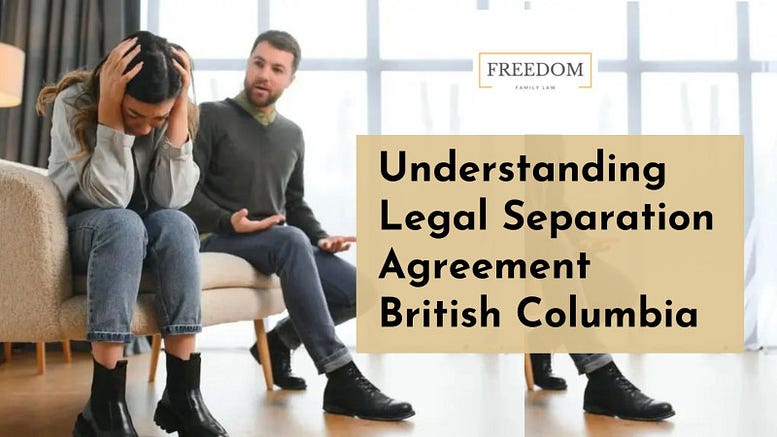
Separations can be difficult but necessary steps towards the individual and collective benefit of a family. To make things simple, however, the partners are required to set up a legal separation agreement in British Columbia that states their rights as well as how they can or cannot behave. Both parties are expected to review this document carefully and then sign it. Later if there is any dispute, this document will be brought out in court and the one who adheres to its clause will be able to get away with changes in behavior and expectations.
Here's What To Know About Legal Separation
According to the theories of family law agreements in British Columbia, separations are not the same as divorce and they usually play out very differently, too. Keeping this in mind, here is what you should know about separation within a family and what it entails.
Separation VS Divorce: Core Aspects
Which is better for you — divorce or separation? Partners who no longer want to live together or be on traditional marital terms can either seek to completely break off the marriage through a divorce or go into separate living.
Divorce has more legal implications but is a necessity if you want to marry someone else. Separation is about living away from each other and not interfering in each other's lives. We can also state the differences as:
- Divorce dissolves the marriage, while legal separation maintains the marriage but separates assets and responsibilities.
- Divorce allows couples to live separately. When separated you need to live apart but don't have to get separate residences.
- Divorce divides property and assets. In separation, you get separate assets but usually can't divide them.
- Legal separation allows for easier reconciliation, in divorce this means marrying that person again.
How To Draft a Personalized Document?
Since this is a documented agreement between you and your partner, you both use your right to include personal clauses as a part of the final document that will be signed.
It is expected that these changes take place under the supervision of experienced lawyers on both sides. Some personalized clauses you can add include:
- Child custody and visitation schedules are tailored to needs.
- Asset division clauses reflect individual circumstances and wishes.
- Debt responsibility allocation clauses suiting both parties' interests (here it should be noted that in a divorce one party is absolved of the debt of the other partner, this is not the separation case).
Negotiating Rights With Your Partner
Lastly, since there are unique agreements involved, negotiation is a must. To properly negotiate with their partner make sure the lawyers are involved and can challenge each other on your behalf. Also, make sure to:
- Not getting personal and playing the blame game
- Making crucial compromises in certain areas so that you can get the most important thing you want
- Creating flexible agreements so that you can change them in the future
- Not invading each other's privacy or setting up agreements just annoys the other person
Last Words
We understand that families have subjective experiences that differ from others in countless ways. Each family has its own set of expenses and incomes that must be considered when rights are provided to members under the Freedom Family Law in British Columbia. Similarly, different families have different core values that individuals might or might not be willing to connect with. So, there is a lot of internal friction between family members during a separation agreement in British Columbia, including children of the parties as well as in-laws and mutual close friends. For more information, you can visit our website.





